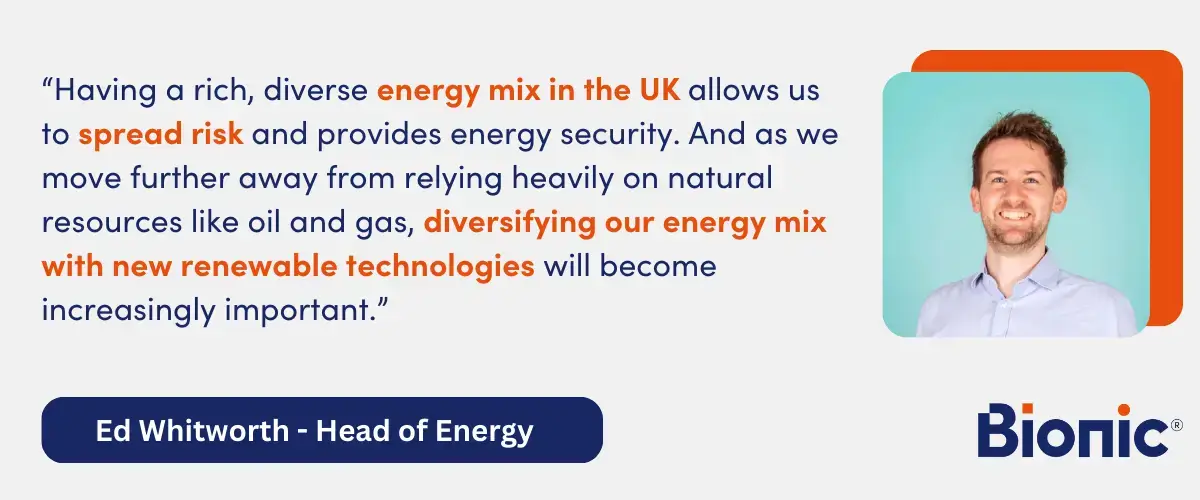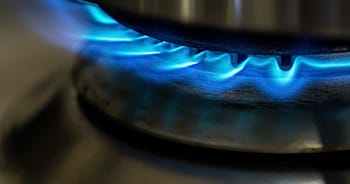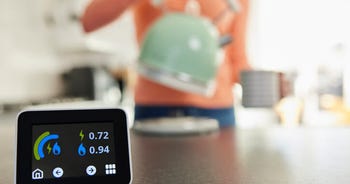Decoding the UK energy mix: What keeps your small business running?
Earlier this year we hit a milestone. On the 15th May 2023, the UK produced its trillionth kilowatt hour (kWh) of electricity generated from renewable energy!
And over the last few decades, our global energy mix has shifted to include more renewable energy as we aim to reduce reliance on fossil fuels.
Today, we have a rich and diverse energy mix in the UK.
In this guide, we cover everything you need to know about our nation’s energy mix - including the energy sources we use, the benefits, and how this helps towards our sustainability targets.
But firstly…
What is the energy mix?
The ‘energy mix’ refers to all the different energy sources used to power a country. The ‘mix’ can consist of various energy sources, both renewable and non-renewable, like coal, gas, wind, hydro and solar. The mix of energy sources is used to power everything - including both gas and electricity across homes and businesses across the country.
The energy mix per country is often different. Why?
- Each country has its own unique mix of energy sources, with some generated on home turf and some imported.
- Some energy resources have a higher demand than others at different periods. E.g. In winter, we need more gas to heat homes and businesses.
- Energy policies vary in each country.
30-second Summary
- The energy mix refers to all the different energy sources used to power a country. In the UK we have a diverse energy mix which includes coal, gas, wind, solar, biomass, nuclear, hydro, and imports from other European countries.
- Wind power plays a big part in our energy mix, with around 11,596 wind turbines producing 12.7 gigawatts of electricity. And other renewable energy sources like Biomass are used to generate electricity, helping the UK towards its net zero target.
- A diverse energy mix provides enhanced security, flexibility in energy usage, reduced dependence on fossil fuels, and supports environmental sustainability by combating global warming and reducing carbon emissions.
- The impact of renewable energy on UK businesses includes exemption from green taxes, a more reliable energy supply, stable energy costs, and a stronger brand.
What is the UK’s energy mix?
The UK has several different sources of energy thrown into the mix. The energy mix isn’t static - but changes daily depending on demand and the amount generated. For example, on a windy day, we might generate more wind power in the UK, therefore we have more energy from wind turbines in the mix than we might do on a day without wind. We also import some of our fuel sources, as we still do rely on help from nearby European countries to balance our risk of low supply.

Let’s take a closer look at the energy sources one by one.
Gas
Natural gas is a fossil fuel that is commonly found beneath the earth’s surface. It’s naturally formed from gasses created from decomposing animals, plants and organic matter from millions of years ago. Although it’s natural, it’s not an endless source of fuel and it will eventually run out. This makes it a non-renewable source of energy, so it’s important we balance out our nation's energy mix with renewable sources too.
We still rely heavily on gas, and to spread the risk of low supply - we actually import around 50% of our gas supply from other European countries. This is used to power both domestic and business use.
Learn all about the UK’s supply of business gas with our guide.
One of the downsides of natural gas is the process of getting it out of the earth. Fracking causes environmental damage with water waste and air pollution from toxic gasses emitted into the earth’s atmosphere. Fracking is currently banned in the UK as of October 2022.
Not all gas is finite - and renewable natural gas (RNS) does exist but it’s in scarce supply and not widely available yet. This gas is generated from landfills, food waste and the general waste we produce on a daily basis. Find out more about renewable natural gas here.
Wind
Next up is wind power. We have around 11,596 wind turbines in the UK, producing around 12.7 gigawatts of electricity. One gigawatt is the same as one billion watts, and an average lightbulb uses around 60-100 watts. So thanks to our windy shores - we’re already producing a lot of wind power as a nation. Wind turbines are one of the cheapest and fastest ways we can generate renewable energy - so it’s no wonder it’s a big part of our nation’s energy mix.
Our wind turbines are both on-shore and off-shore in the UK. But what’s the difference? On-shore refers to those placed on our island’s shores and off-shore refers to wind farms that are out at sea. The latter produces more power because of high winds and less interference from human activity.
Biomass
You might not have heard of biomass, but’s a big part of the UK’s energy mix. Essentially, it’s fuel generated from burning natural material - wood, crops, organic matter or anything else from living things (like animal waste). When done properly, this type of energy production can be carbon negative - the carbon it puts back out outweighs the carbon it produces. This is great news for achieving our net zero target as a nation.
You might think biomass is used like gas, but it’s actually used to generate our electricity. The UK uses wood pellets imported from the USA & Canada as fuel in electricity plants. This has replaced the traditional use of coal, which is much more harmful to the environment.
The great thing about biomass is that it doesn't depend on the weather like solar panels and wind turbines do, therefore it’s a much more stable source of renewable energy.
Interested in fueling your small business with renewable energy? Read our guide to renewable energy for business to see your options.
Nuclear
Nuclear power currently provides around 15% of the UK’s electricity supply. But we’re actually phasing out nuclear power production in the UK.
Nuclear power plants are expensive to build, tricky to operate, and they produce toxic waste. This raises some concerns over where to store the waste long-term, as leakage could be fatal for people and the environment. The UK’s active nuclear power stations are old and in need of repair, but they aren’t getting government investment.
But there is a chance this may change in the near future. Harnessing nuclear power could be key to reducing our carbon footprint and hitting net zero.
Coal
We’ve been using coal as a source of fuel for centuries but we’ve slowly cut down on usage because of its harmful environmental effects.
Coal is a type of sedimentary rock made from fossils from millions of years ago. As a result, it’s mostly carbon that can be burnt and used as fuel. It used to power many of our electricity plants, but it’s deadly to our planet’s health, contributing to global warming and polluting the air we breathe.
We’ve been replacing coal usage with renewable options for decades, so now it only represents a small part of our energy mix. The UK government has pledged to stop all electricity production using coal by October 2024. This is part of the government's plan to stop using fossil fuels by 2050, helping to reach the net zero target.
Solar
Although the UK isn’t known for its sunny weather, we actually generate a lot of energy through solar panels for both homes and businesses.
In fact, in 2023 so far, we’ve seen a 23% increase in businesses installing solar panels, generating their own power. It’s debatable that businesses have installed solar because of rising energy costs over the last few years. Generating your own power means less reliance on energy from the National Grid. And businesses can also sell unused energy back to the Grid with the Smart Export Guarantee.
But what is solar energy? Solar takes the heat produced from the sun’s radiation and turns it into energy we can use. Even on cloudy days, modern solar panels are good at harnessing power from the sun. And we have vast amounts of it, so it makes sense this renewable energy source takes up a chunk of our country's energy mix.
Read our full guide to solar power for business.
Hydro
We’ve been using hydropower since the 50s and 60s when many UK hydro plants were built. Currently, they only make up a small amount of the UK’s energy mix. But the UK government suggests more hydro-powered plants could contribute up to 1-2% of the nation's energy supply.
So, what is hydro, and how does it work?
In simple terms, Hydro or (hydroelectric) power is the energy generated from flowing water. Either from natural or man-made rivers or streams. It works by water flowing from a high-level reservoir down through a tunnel and into a dam. Under the water, there are turbines to take the kinetic energy from water movement and eventually convert it into electrical energy.
Although hydro is a natural source - it does have a few environmental drawbacks:
- It takes up space in mountains and hilly areas and these are often protected reserves that can’t be tampered with. This means building new hydro plants is tricky.
- Dams can damage natural areas, impacting the environment. This includes flooding - destroying natural animal habitats.
- Dams block the natural flow of water, which can impact the natural migration of fish in our rivers.
Despite this, some businesses in rural areas install micro hydro plants for power generation. These can be situated by natural streams and are less destructive than large-scale dams.
Imports
Part of the UK’s energy mix is imported from other European countries like Norway, France and The Netherlands. Why? To help spread the risk.
So if any UK supplies are low, we can fall back on supplies from other countries to help. In fact, Norway is our biggest gas supplier and it’s supplied through pipelines into the UK to be used or stored.
Storage
It’s important to have gas stored away to avoid any massive shortages so homes and businesses don’t go without power. It’s also key if we have a bad year for weather and don’t generate enough wind or solar energy as planned.
Energy storage is so vital the UK government are funding new storage technologies with £32.9 million. The aim of this is to find new ways to store renewable energy so we can rely less on the storage of fossil fuels.
What are the benefits of having a diverse energy mix?
Having a broad energy mix is key for several reasons:
- It provides security - The more diverse our energy mix, the more we spread the risk. You can think of it like an investment portfolio - people diversify investments in different sectors and countries in case one area doesn’t do well - they have another to fall back on.
- More energy means - Energy sources are not the same and can’t all be used to power the same thing. E.g. Biomass can’t power electric cars. So we need different types of energy in the mix to power different means.
- Less dependence on fossil fuels - We want to move away from relying on fossil fuels. Why? They not only harm the environment - prices are volatile and can change every month. This can make the market unpredictable and both domestic and business customers will pay the price. Using more renewable energy provides more stable pricing in the long term.
- Environmental sustainability - It’s not ideal to be relying on fossil fuels because they harm the environment. Using more renewable energy means we won’t be contributing to global warming, and we can focus on reducing carbon emissions where possible.

Does the UK rely too heavily on energy imports?
It’s debatable. It’s important we rely on imports as part of our energy mix for the reasons mentioned above. The main risk with energy imports is if any geopolitical or economic issues arise that disrupt the flow of our energy imports. This is a risk that is accounted for as we import from multiple different countries. We also still produce a lot of our own renewable energy, which evens out the mix.
Can the UK reach net zero by 2050?
We’re on our way, but more action is needed to reach our target.
An independent review of the plan to hit net zero states that we should be proud of the steps taken to achieve net zero so far. But, the CCC (Committee on Climate Change) noted that we are not on track to deliver all the commitments we set out to make. So the need for more action from the government and every consumer is clear if we are to hit our target of removing all emissions by 2050.
What is the impact of renewable energy on UK businesses?
Using renewable energy for business has its benefits. These include:
- Exemption from some green taxes - including the Climate Change Levy (CCL) – a tax on the energy used by some businesses.
- A more reliable energy supply – we will eventually run out of fossil fuels and we rely heavily on importing them. It’s a safer bet for small businesses to invest in renewables so you have a steady supply of renewable energy - as it won’t run out.
- Stable energy costs – renewable energy costs don’t rise and fall as sharply as fossil-fueled energy. So, renewable energy sources have more price stability.
- Stronger brand credentials – customers like dealing with businesses that are ‘green’. If you are using renewable energy and other green practices across your business, you can promote this. Just be aware of greenwashing, you don’t want to deceive your customers.
- Foundation for the future - as we increase our usage of renewables, more government targets and legislation will come in. Switching to renewables might mean your business is ahead of the game and gives you a head start.
Interested? See our full guide on renewable energy for business.
What is the UK’s Energy Security Strategy?
The UK’s Energy Security Strategy sets out to make the UK more energy dependent. Currently, we only rely on a very small amount of energy from Russia, but this plan sets to eliminate reliance on this. The plan also aims to meet our sustainability targets. The strategy has these main aims:
- To reduce offshore energy production - with plans to better use our North Sea Reserves.
- Steps to capture carbon dioxide waste from energy production and harness it to find new ways to use it by 2030.
- A commissioned scientific review of shale gas extraction, specifically to look at risks and damage to our planet. The report was published July, 2022.
- A proposal for a 40% reduction in non-renewable gas usage by 2030.
- New targets for low-carbon power generation (than those set out in 2020) - to help us better reach net zero.
- New regulations reduce the time to get consent for new offshore wind, down from four years to one.
- A bid for cleaner and more affordable energy to be made in the UK and quicker expansion of nuclear, wind, solar and hydrogen.
- A 2 million pound backed North Sea Transition deal. This will harness the power of the UK offshore oil and gas industry to get to net zero by 2050.
How Bionic can help with your business energy
The energy-savvy team at Bionic can compare business gas and business electricity deals that could beat your supplier’s out-of-contract rates. We also offer renewable options.
We can also help with business insurance, business phone and broadband, VOIP, and business loans. We just need your postcode to start comparing deals. To find out more, just enter your postcode in the box to the right or call 0800 524 4122.





